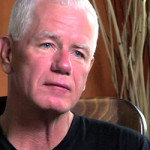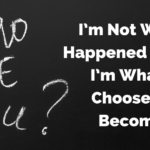
“The crucial point is it has to be now…”
I have several framed quotes on my kitchen counter. One is “If today was the last day of my life, would I do what I am about to do?” “NO!!!” is the answer.
Another quote is: “Base your decisions, not on feelings, but the outcome you want.” I have lost track of what that might even mean right now.
Burkeman has called me on the carpet. I am one that postpones “real life” to the future when I have time. “When I have time” is always the carrot I am chasing. How about you? We need to knock it off, I think…
THE IMPERFECTIONIST by Oliver Burkeman
How to choose sanity now
For a solid decade, I worked in a newspaper environment where I was never more than about three days, and often just a few hours, away from a deadline. I wouldn’t trade that experience for anything – but one of its many benefits was that it taught me there’s something psychologically unhealthy about short deadlines, at least for people like me. That’s because it was far too easy to tell myself that it was after the next deadline that I’d finally take a deep breath, take charge of my career, make proper time for my friendships, generally sort my life out, and stop mentally living a few days in the future.
Some people postpone “real life” to distant points in the future, subconsciously telling themselves it’s when they graduate, or get married, or switch jobs, or retire, that the truly meaningful part of life will begin. (I’ve sometimes been guilty of that, too.) But the short-horizon version of this tendency is in some ways more seductive, and thus more dangerous, because the future moment in question is due to arrive so imminently you can almost reach out and touch it. It’s not “in 30 years, when I retire.” It’s the day after tomorrow, just as soon as I’ve got this article out of the way…
It was my growing disillusionment with this outlook that led me, eventually, to what now feels like a baseline principle for living a calm, meaningfully productive and enjoyable life, which is that in the end, striving toward sanity never works. You have to operate from sanity instead.
That sounds abstract, so allow me to explain. Concrete examples follow.
I’m using “sanity” here to refer broadly to what it feels like to live the kind of life you want to be living, which for me, anyway, means calm, focused, meaningful, connected to others, and so on, as opposed to anxious, overwhelmed, isolated and distracted: all the usual stuff. (I know some people don’t like the word, because of its role in discussions of mental illness, but it expresses what I mean too precisely to avoid using it here – sorry.)
And the basic principle in operation, as far as I can grasp it, is this: if you treat sanity as something you have to get to, by doing a lot of preparatory things first, the main effect will be to reinforce the sense of its being out of reach. You might get plenty of useful things done along the way, but you won’t reach peace of mind – because you’ll effectively be telling yourself, on a daily basis, that peace of mind is off in the distance, and never available here.
Operating from sanity, by contrast, means embodying a certain orientation toward life now, first, then doing stuff – rather than doing the stuff in an effort to attain the orientation. The crucial point is that it has to be now, not next year, and not even in a few hours’ time. In his book Anti-Time Management, Richie Norton breaks it into two steps: “1. Decide who you want to be. 2. Act from that identity immediately.” That’s correct, I think, but perhaps risks making it sound as if what’s required is a total personality transformation. So it’s time for some down-to-earth examples:
If you’ve accumulated an unpleasant email backlog (like me, recently!) then striving toward sanity means setting aside five whole days to do nothing but plough through the messages – which won’t work, partly because you won’t be able to maintain the motivation, and also because other messages and tasks will accumulate in the meantime, leaving you as backlogged as before. Operating from sanity means sequestering all those emails in a separate folder – hey presto, your inbox is empty! – then endeavoring to stay current on new incoming emails, so as to prevent another backlog developing. Meanwhile, chip away at the backlog a little each day or, if your situation allows, just delete it entirely.
If you’re a people-pleaser, and a whole mass of commitments that you wish you hadn’t made are standing between you and peace of mind, then striving toward sanity means resolving to meet them all, but promising yourself you won’t make so many in future. (Spoiler alert: you will!) Whereas operating from sanity means renegotiating some existing commitments in order to free up time, or – whisper it – even just flaking entirely on a few of them.
Likewise, striving toward sanity means “clearing the decks” before getting down to business on a project you care about, or reading another how-to book about it, while operating from sanity means “paying yourself first”, making a start even though the decks aren’t clear – because you understand that even five minutes spent Actually Doing The Thing are more valuable than hundreds of purely hypothetical hours at some point in future.
Or maybe what you need in life is more fun? In that case, the striver-toward-sanity will buckle down and grind harder – making life less fun – in order to make space for fun at some other time. Whereas the operator-from-sanity will make sure to do something fun, however briefly, today.
There are two main hazards to be aware of here, I think. One is attempting to embrace this idea in a perfectionistic spirit, resolving to operate from sanity from this day forth and forever – which is in fact a subtle form of striving, because it defines success as maintaining this attitude for the rest of your life, when in fact the only time you could ever do it is now, with no promises about whether you’ll also manage it tomorrow or next month. (I’m certainly a long way from embodying it unfailingly myself.)
The other is the paradoxical truth that stepping into this orientation toward life doesn’t exactly feel good, so it’s helpful not to expect that. Frankly, it feels uncomfortable and awkward, especially at first, because it involves shifting away from a familiar way of being into an alien one.
And yet lurking beneath the awkwardness there’s something unmistakably deeply satisfying about any attempt to live in this manner, even to a modest degree. You feel more engrossed in your experience, and like you’re exerting more of an influence on things, even though you’ve eased up on your attempts to attain a feeling of control. Life certainly doesn’t become problem-free, and you’re no longer so confident it ever will be. But problems become tractable, and often enough, you can approach them with relish.
Metaphorically speaking, it’s less a matter of lounging on a beach in the sun without a care in the world, and more like striding over open moorland, with the wind and the rain in your face. Bracing. Invigorating. And full of life.






























